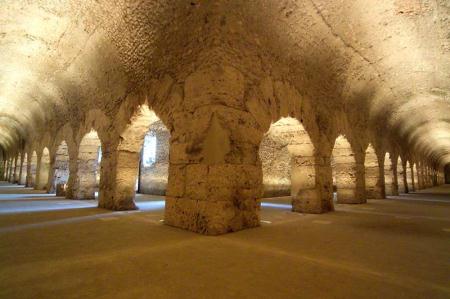From 18 September the appointment with the European Heritage Days in Valle d’Aosta returns
Also this year the Aosta Valley will participate in the European Heritage Days with the ninth edition of Plaisirs de Culture, which will take place from 18 to 26 September 2021. The theme proposed by the European Union, Heritage All Inclusive – Cultural heritage all included !, aims to encourage inclusion in the knowledge of heritage, bringing the groups of users who for various reasons still do not benefit from it or who attend the regional cultural sites in a minimal way closer to the cultural experience. A real challenge for the Department of Cultural Heritage, Tourism, Sport and Commerce and the Superintendence Department for Cultural Heritage and Activities of the Autonomous Region of Valle d’Aosta: to break down the barriers between the cultural offer and its potential visitors.
“It is necessary to adapt the offer of cultural experiences to an inclusive world in which the set of multiple cultural codes, such as the tiles of a large mosaic or the countless threads of a precious fabric, represent the way of understanding the word” Culture ” in the 21st century », says Jean-Pierre Guichardaz, Councilor for Cultural Heritage, Tourism, Sport and Commerce.
Plaisirs de Culture 2021 therefore stands as a stimulating, enlarged and current edition that will be inaugurated on Friday 17 September at 6 pm in Piazza Roncas in Aosta with TraME and TE. Opening event with such a significant title that it intertwines gestures, traditions, voices and music of a multiple fabric, social, cultural and musical. For the occasion, the video-performance Elementarmente Human will be screened, created as part of the FAMI IMPACT Project “Living in Valle d’Aosta” directed by Alessandro Stevanon. The protagonists of the performance are the second generation children residing in Valle d’Aosta who, among the underground labyrinths of the Regional Archaeological Museum, emblematically seek their own identity, their roots and their own path. The work is the result of a larger project conducted with the support of cultural anthropologist Marcela Olmedo, associate professor at the British Open University of Keynes.
And again, the performance symbol of inclusion and participation At the bottom of the heart, created by the Sardinian artist Pietrina Atzori in collaboration with the cooperatives Les Tisserands of Valgrisenche and Lou Dzeut of Champorcher will be proposed. She collaborates with the set designer Gabriele Lasio, the musician Francesco Medda, aka Arrogalla, and the Ghanaian Rianza Mensah on vocals.
At the center of the evening, the photographic exhibition The Families of Man, set up at the Regional Archaeological Museum. A project conceived in a historical moment characterized by unexpected and radical changes in which the works of 50 Italian photographers compose a large fresco on the historical, social, economic and environmental contemporaneity of the last thirty years. Some of these visits will be translated into LIS, the Italian Sign Language.
The day will close at the Renato Callisto Arnod Auditorium: here at 9 pm Jérémy Jouve, an eclectic musician recognized by critics as one of the most talented French guitarists, will take the stage.
The events will then continue until September 26 with the free or reduced rate opening of castles, archaeological sites, exhibitions, museums and events and the enhancement of the local ecclesiastical heritage. For the occasion and in the name of multiculturalism, the special visits to Common Places, organized as part of the FAMI Impact project, break down stereotypes by organizing meeting opportunities in places dedicated to the protection and conservation of cultural heritage. Thus guided tours are organized enriched by the presence of cultural facilitators in Arabic, Portuguese and Romanian in the megalithic area, and of mediators in Albanian, Chinese and Wolof languages at the Gamba Castle in Châtillon. And also guided tours aimed at non-visually impaired and non-hearing-impaired people, with immersive and sensory visits, including reproductions and casts of objects, or with the support of translation into LIS.
The 2021 theme, which has always been the basis of the school system of all levels, will also be the protagonist of some interesting moments of reflection, such as seminars, round tables and documentary screenings, as well as offers aimed directly at schools.
Among the numerous events worth mentioning are the Gamba Fest, a cultural happening at the Gamba Castle in Châtillon that celebrates art in a participatory manner, and the two appointments at the Roman Theater. On Tuesday 21 September Stefano Massini, well-known writer and TV face, will tell his Survival Manual inspired by news stories and bizarre webs poised between reality and reality. On Friday 24 September, Massimiliano Ossini, writer and well-known television personality, will present his third book Kalipè. At a walking pace, where it confirms that psychophysical well-being depends on a more sustainable approach to nature.
“This year’s edition of Plaisirs – declares the Councilor for Cultural Heritage, Tourism, Sport and Commerce Jean-Pierre Guichardaz – sees the participation of numerous municipal administrations, in addition to the entities usually involved in the cultural promotion of our region, all engaged in the organization of events aimed at the enhancement of the heritage and its accessibility in a broad sense. The exhibition represents an opportunity not to be missed to visit castles, archaeological sites, exhibitions and museums in the Aosta Valley, taking advantage of free or reduced rate admissions. In keeping with the theme of the European Heritage Days, a moment of reflection is offered on how much diversity can be eliminated by having culture as a common denominator ».
Veronica Pederzolli
.

